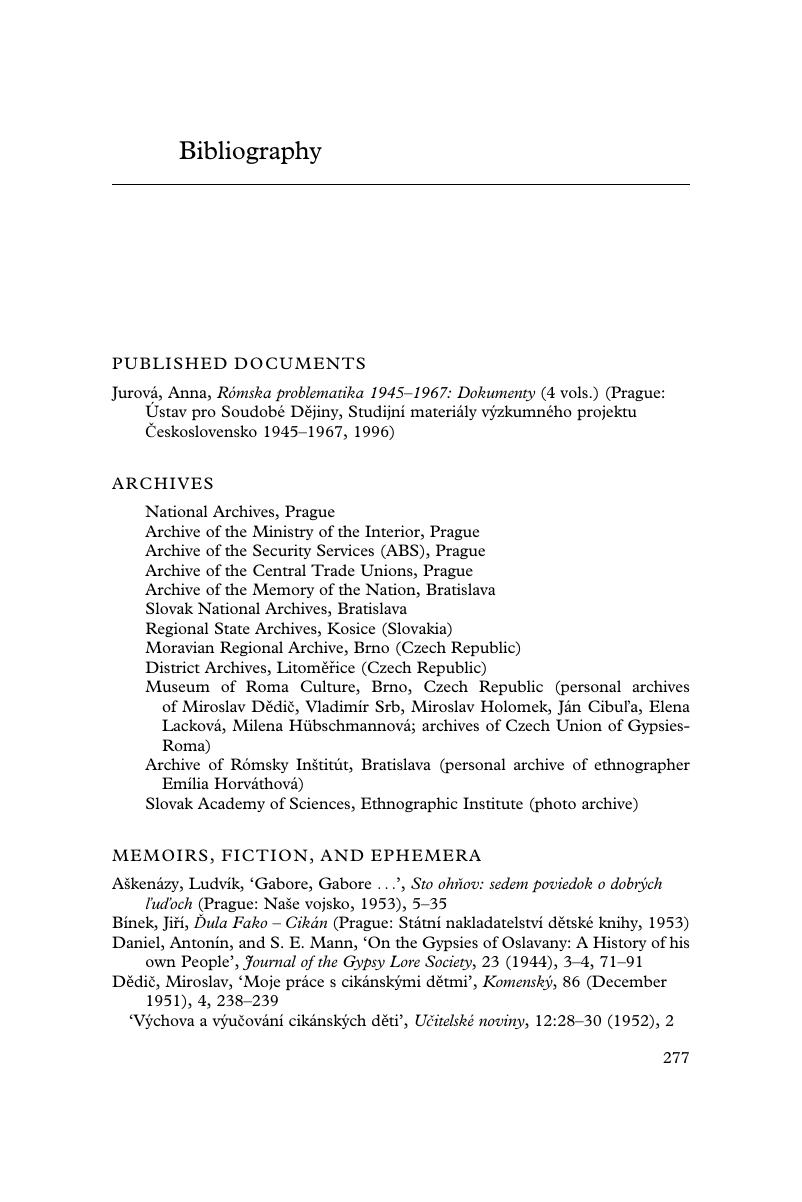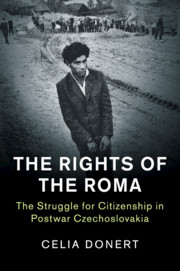Book contents
- The Rights of the Roma
- Human Rights in History
- The Rights of the Roma
- Copyright page
- Dedication
- Contents
- Figures
- Acknowledgements
- Introduction
- 1 Legacies of 1919
- 2 Stalinist Gypsy Workers
- 3 But Roma Are Rural!
- 4 Cracking Down on Nomadism
- 5 Into the 1960s
- 6 Prague Spring for Roma!
- 7 The 1970s
- 8 Losing Rights after 1989?
- Conclusion
- Bibliography
- Index
- References
Bibliography
Published online by Cambridge University Press: 12 December 2017
- The Rights of the Roma
- Human Rights in History
- The Rights of the Roma
- Copyright page
- Dedication
- Contents
- Figures
- Acknowledgements
- Introduction
- 1 Legacies of 1919
- 2 Stalinist Gypsy Workers
- 3 But Roma Are Rural!
- 4 Cracking Down on Nomadism
- 5 Into the 1960s
- 6 Prague Spring for Roma!
- 7 The 1970s
- 8 Losing Rights after 1989?
- Conclusion
- Bibliography
- Index
- References
Summary

- Type
- Chapter
- Information
- The Rights of the RomaThe Struggle for Citizenship in Postwar Czechoslovakia, pp. 277 - 294Publisher: Cambridge University PressPrint publication year: 2017



